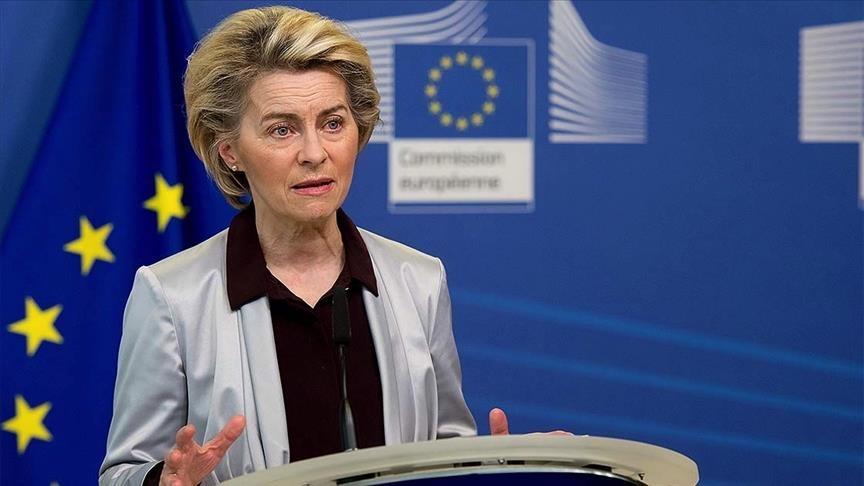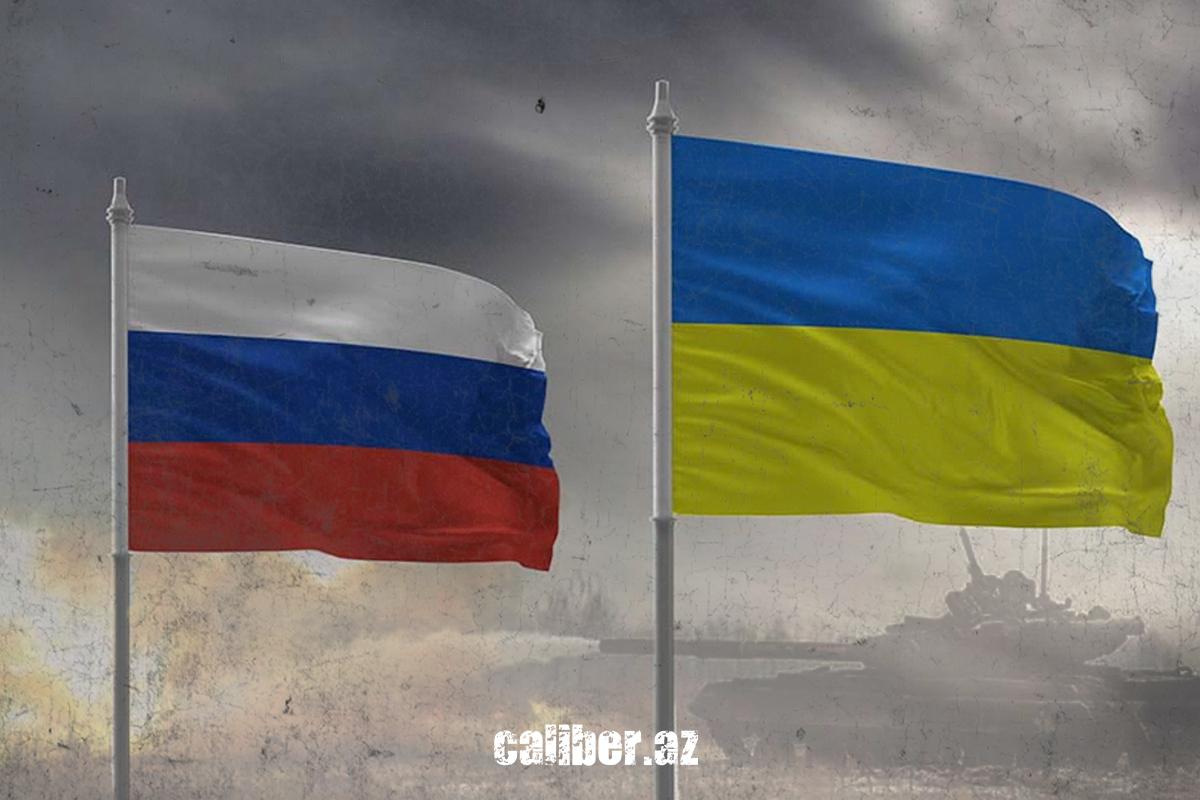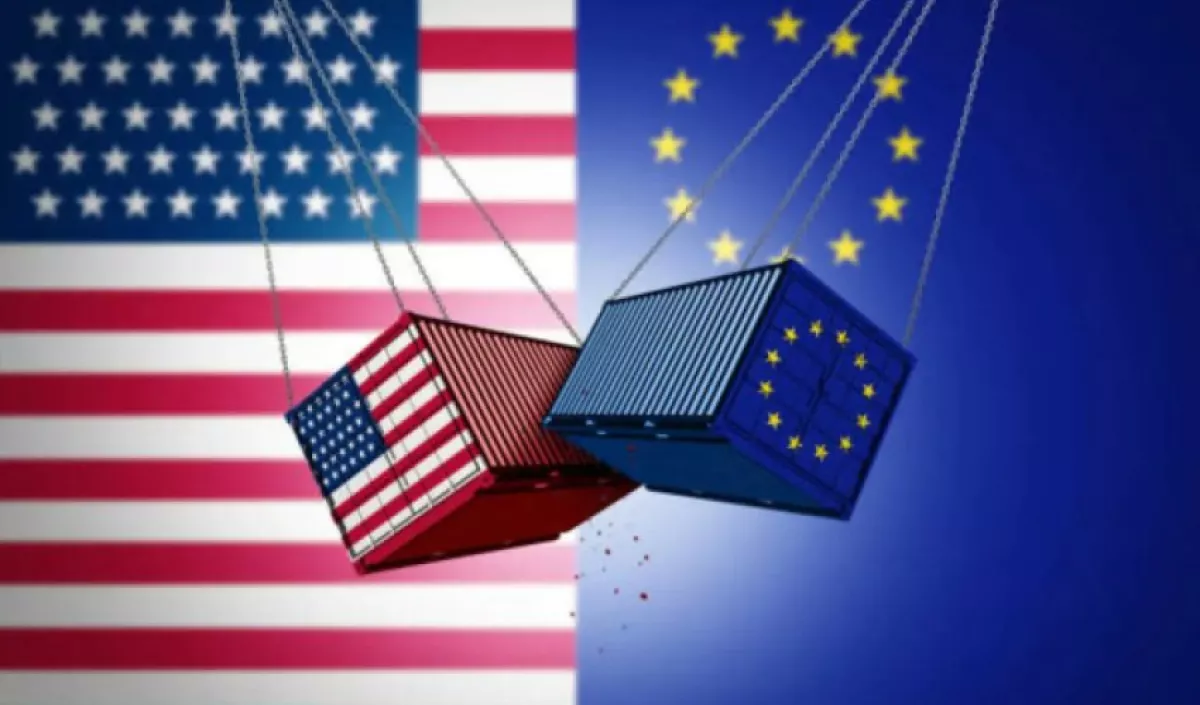Von der Leyen charts Europe’s role in the new world order The Old Continent vs. the United States
The President of the European Commission (EC), Ursula von der Leyen, delivered her annual “State of the European Union” address in the European Parliament. While reporting on the EU’s achievements, she also put forward new initiatives, thereby setting the political agenda for the year ahead. Analysts noted that the tone of von der Leyen’s current address differs significantly from her earlier speeches. Moreover, she deliberately chose a rather sharp format for her address.
Today’s Europe is fighting “for a free and independent” continent, for “our values and democracies,” including the ability to determine its own destiny, von der Leyen emphasised, framing the current historical stage as a struggle for “our future.”

The EC President consciously adopted such a sharp tone at the outset of her speech, noting that Europeans are generally not accustomed to speaking in this way. Von der Leyen sees the reason for this in the peaceful nature of the European Union, whereas the “ world of today is unforgiving.” Therefore, it is no longer possible to ignore daily challenges, including the anxiety caused by a series of events — from the devastating scenes in Gaza to the relentless Russian shelling of Ukraine. According to her, these issues highlight the emergence of a new world order “based on power.”
Von der Leyen underscored the necessity for Europe to fight for “its place in a world in which many major powers are either ambivalent or openly hostile to Europe.” Against this backdrop, the EC President loudly declared the importance of a functioning new Europe in a world of “imperial ambitions and imperial wars,” where power is dictated by weapons.
She defined the EU’s mission as protecting Europe’s independence, ensuring its own defence and security, which would allow Europeans to decide for themselves “what kind of society and democracy we want to live in,” since the issue at hand is the right to determine one’s own destiny.
Von der Leyen also expressed confidence that Europe is capable of achieving its goals. Despite sceptical statements in previous years about the impossibility of realising its ambitions, Europeans have consistently succeeded. The difference today is that achieving results requires Europe to muster courage and overcome internal divisions.
Therefore, all EU members must determine how prepared they are for this. In the current conditions, maintaining unity within the organisation is paramount — whether in relation to Ukraine or other challenges. In particular, this concerns the urgent development of a mechanism to fund Ukraine’s military operations using immobilised Russian assets, which became especially relevant after Moscow violated Polish airspace, effectively expanding the zone of confrontation.

Clarifying her position, the President stated that “the assets themselves will not be touched,” but “the cash balances associated to these Russian assets, we can provide Ukraine with a Reparations Loan,” since “this is Russia's war. And it is Russia that should pay.” At the same time, the military actions must end with a just and lasting peace for Ukraine, because Ukraine’s freedom is Europe’s freedom.
This is why the widely circulated footage from Alaska was “not easy to digest,” yet just a few days after viewing it, European leaders travelled to Washington to support the President of Ukraine. Following this, real progress was achieved.
The EC President also addressed the Middle East. Noting that the artificial famine imposed by Israel can never be a tool of war, von der Leyen strongly condemned plans to “cut off the occupied West Bank from East Jerusalem” and the statements of “extremist ministers of the Israeli government which incite violence .” In this context, she emphasised: “All of this points to a clear attempt to undermine the two-state solution. To undermine the vision of a viable Palestinian state and we must not let that happen.”
However, what is painful for many is that, despite the unacceptable events in Gaza, Europe remains unable to agree on a unified approach. At the same time, Europeans themselves must lead the resolution process, remaining committed to a viable Palestinian Authority and the preservation of the two-state solution.
In this framework, von der Leyen announced plans to establish a Palestinian Donor Group, including a special mechanism for Gaza’s reconstruction. She also stressed the importance of ensuring real security for Israel, as well as a present and future for all Palestinians.
The EC President concluded her hour-and-a-half-long speech by emphasising that Europe’s independence will depend on its competitiveness “in today's turbulent times.”
In the immediate aftermath of von der Leyen’s address, analysts noted that, although significant attention was given to the economic and social agenda in relation to Europe’s place in the world, it was the political dimension that emerged as the dominant theme.

Overall, her positions on the issues she raised were already known. However, as noted above, the tone of the EC President has shifted toward greater firmness. While not directly naming the transatlantic space, she effectively confirmed that the rift between America and Europe is no longer merely a crack but a significant watershed. This became one of her key messages, alongside the observation of a lack of unity within the European Union.
A particular nuance in von der Leyen’s analysis was that, alongside Russia and China, the position of the Washington administration also poses a threat to “our democracy.” Yes, she explicitly spoke of global competition, but the main emphasis was on what, in the Western world, is considered an existential confrontation between the United States and the European Union. In her careful elaboration, von der Leyen framed this confrontation as carrying a strong ideological charge, manifesting itself both politically and in trade and economic relations.
The EC President drew a parallel between Russia’s actions in Ukraine and Israel’s actions in Gaza (which has already provoked disapproval in both Russia and Israel). However, experts consider the core theme of her speech to be the outlined contours of political, economic, and ideological misalignment within the transatlantic space. According to von der Leyen, this misalignment is the result of a deliberate policy by Washington.








